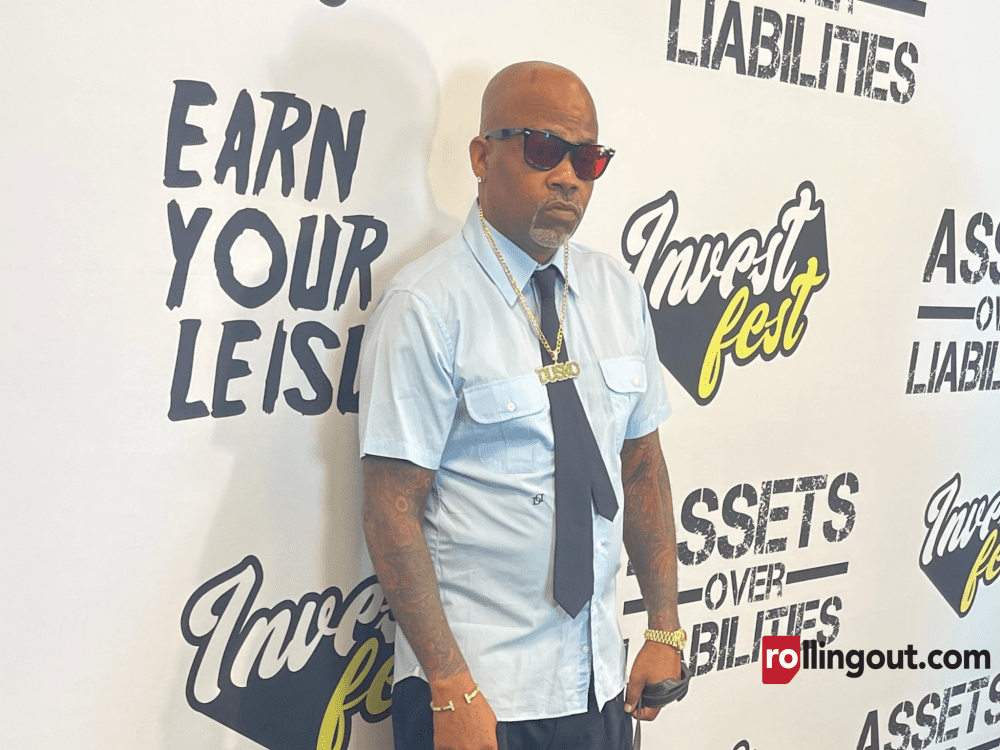In a dramatic turn of events that signals the end of an era in hip-hop history, New York state authorities have acquired Dame Dash‘s one-third ownership stake in Roc-A-Fella Records for $1 million through a public auction. The sale marks a significant downfall for one of hip-hop’s most influential business minds, forced by mounting tax obligations that have haunted the music mogul for years. This watershed moment in hip-hop business history underscores the volatile nature of music industry success and the importance of financial management in maintaining long-term stability.
Behind the auction block
The forced sale emerged from a complex web of financial obligations, with state authorities executing a court judgment of $823,000 against the music industry veteran. The situation intensified as additional financial burdens came to light, including a staggering $1.7 million in back taxes and $223,000 in child support payments. Through a strategic creditor’s bid, New York state secured the stake without immediate cash expenditure, effectively transferring ownership of this piece of hip-hop history to government hands. The auction process itself revealed the intricate nature of valuing cultural assets in the modern entertainment landscape, where streaming revenues and digital rights have transformed traditional business models.
The rise before the fall
The story of Roc-A-Fella Records reads like a hip-hop fairy tale turned cautionary tale. In 1996, Dash partnered with Jay-Z and Kareem Burke to establish what would become one of music’s most influential empires. The label sparked a cultural revolution, introducing artists who would reshape the musical landscape and defining an era of hip-hop entrepreneurship. Their innovative approach to artist development and marketing set new industry standards, while their business acumen helped establish hip-hop as a legitimate force in corporate America.
Legacy at stake
The transfer of Dash‘s ownership stake represents more than a simple business transaction. It symbolizes a shifting of power in an institution that helped transform hip-hop from a musical genre into a global cultural force. The label’s catalog, including seminal works from its roster of groundbreaking artists, now faces an uncertain future under partial state ownership. This transition raises important questions about the preservation of hip-hop’s cultural heritage and the role of governmental entities in managing creative assets.
Industry implications
This development sends ripples through the music industry, raising questions about the sustainability of independent label ownership and the long-term financial management challenges faced by entertainment entrepreneurs. The auction serves as a sobering reminder that even the most successful cultural architects must navigate complex financial waters. The music industry’s evolution from physical sales to streaming platforms has created new challenges for traditional business models, making financial literacy and adaptive management strategies more crucial than ever.
Looking forward
As the dust settles on this landmark sale, the industry watches closely to see how this change in ownership might affect Roc-A-Fella’s legacy. The label’s influence on hip-hop culture remains indelible, even as one of its founding fathers loses his stake in the empire he helped build. This transition period may reshape the relationship between creative enterprises and traditional financial institutions, potentially influencing how future music industry entrepreneurs structure their businesses and manage their assets.
The aftermath of this auction extends beyond immediate financial implications, touching on broader themes of wealth management in the entertainment industry, the intersection of creative and business interests, and the long-term sustainability of independent music empires. As streaming platforms continue to reshape the industry’s economic landscape, the lessons learned from this situation may guide future generations of music entrepreneurs in building more resilient business structures.
The story of Dame Dash and Roc-A-Fella Records serves as both a testament to hip-hop’s transformative power and a cautionary tale about the importance of sound financial management in sustaining success. As the industry continues to evolve, the impact of this ownership change will likely influence discussions about business practices, asset management, and the preservation of hip-hop’s cultural heritage for years to come.

















